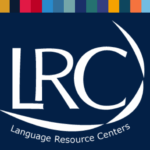History
 The Center for Educational Resources in Culture, Language, and Literacy (CERCLL) is one of sixteen Language Resource Centers (LRCs) nationwide that were funded in part by the US Department of Education, and formed an active and productive network. For 35 years, the network generated and disseminated valuable resources to promote the teaching and learning of languages other than English, particularly less commonly taught languages. For over two decades, CERCLL has been a hub for local, national, and international conferences, symposia, institutes, and webinars. Additionally, CERCLL supported projects that resulted in the creation and publication of numerous resources, including scholarly books, conference proceedings, and open-access teaching and learning materials. Below is a summary of each cycle and CERCLL’s major accomplishments.
The Center for Educational Resources in Culture, Language, and Literacy (CERCLL) is one of sixteen Language Resource Centers (LRCs) nationwide that were funded in part by the US Department of Education, and formed an active and productive network. For 35 years, the network generated and disseminated valuable resources to promote the teaching and learning of languages other than English, particularly less commonly taught languages. For over two decades, CERCLL has been a hub for local, national, and international conferences, symposia, institutes, and webinars. Additionally, CERCLL supported projects that resulted in the creation and publication of numerous resources, including scholarly books, conference proceedings, and open-access teaching and learning materials. Below is a summary of each cycle and CERCLL’s major accomplishments.
2006 – 2010
CERCLL opened its doors in 2006. During the first grant cycle, four categories were established to organize our projects and maintained in one form or another over future cycles: Innovative Pedagogies for LCTLs; Digital Learning Tools for LCTLs: Literacy: New Approaches for LCTLs; Community Collaborations. It was during this grant cycle that our International Conference on the Development and Assessment of Intercultural Competence began. Due to the interest it generated, the conference would grow from one and a half days to three days.
Projects in this grant cycle continued to be organized into four threads (Innovative pedagogies; Materials and Products; Professional Development and Community Connections; Knowledge Generation and Sharing) that served to organize our various projects and initiatives. In this grant cycle, we continued to offer our bi-annual Language Teacher Symposium (LaTeS), Second Language Digital Literacies Symposium, and International Conference on the Development and Assessment of Intercultural Competence.
2014 – 2018
Three threads (Innovative Pedagogies and Materials; Professional Development and Community Connections; Knowledge Generation and Sharing) served as organizational categories for our projects and initiatives. The new projects for this grant period included: American Study Abroad Students in China: Archiving Interactions between the American and Chinese Youth; Film Clips for Foreign Language Culture and Literacy; Foreign Languages and the Literary in the Everyday; Games for Literacies; Reading Globally: Connecting K-8 Classrooms to the World; Globalizing the Common Core State Standards; Intercultural Sojourns: Assessing Outcomes and Impact.
Our bi-annual Language Teacher Symposium (LaTeS), Second Language Digital Literacies Symposium, and International Conference on the Development and Assessment of Intercultural Competence continued to be offered during this grant cycle.
2018 – 2022
During this grant cycle, four threads (Innovative Pedagogies, Curricula and Materials; Teaching and Learning Communities, Knowledge Sharing and Building) served as organizational categories for our projects and initiatives. Projects were grouped in the following areas.
- Science and Technology Integration: Advancing L2 Composition through Socioscientific Issues; Film School for Global Scientists; Socioscientific Issues (SSI) in LCTLs Classrooms
- Linguistic Complexity Through Multiliteracies: Multilingual Academic Corpus of Assignments-Writing and Speech (MACAWS); Tasks for Linguistic Complexity in Arabic
- Intercultural Perspectives: Cross-Cultural Thinking Through Translation and Interpretation; Multiliteracies at the Museum; Global Clubs towards Intercultural Curricula
In this grant cycle, we continued to offer our long-running, bi-annual Language Teacher Symposium (LaTeS), Second Language Digital Literacies Symposium, and International Conference on the Development and Assessment of Intercultural Competence. In 2020, during the COVID-19 pandemic, we added a Webinar Series and Professional Learning Online Networks (PLONS) to our already extensive list of professional learning events. Based on survey data, a toolkit for K-12 Chinese language teachers was developed.
2022 – 2026
Four threads (Innovative Pedagogies, Curricula and Materials; Teaching and Learning Communities, Knowledge Sharing and Building) served as organizational categories for our projects and initiatives during this period. Projects were clustered around four areas.
- Socially-Situated Materials for LCTLs: Developing Sociopragmatic Competence in L2 Arabic; A Corpus-based Chinese Language Textbook for Intercultural Communication; Multimodal Persian Dictionary; Learning Hindi Online through Current Social Issues; Foreigncy: Learning LCTLs with Current News
- L2 Multiliteracies in Action: Global Citizenship in Multiliteracies-Oriented L2 Curricula in Multiliteracies-Oriented L2 Curricula; Multiliteracies Language Teaching In World Language Classrooms; A Framework for Scaffolding FL Students’ Digital Multimodal Composition
- New L2 Pedagogies: Making Gender-Just Language Education Happen; Bringing Ungrading to Language Learning Contexts; Language and Culture Programs as Sites of Well-Being.
- Intercultural Perspectives in K-12 Classrooms: Worlds of Experience: Immersive International Virtual Field Experiences with Language Teachers; Learning about Language and Culture in K-8 Classrooms
We continued to offer the bi-annual Language Teacher Symposium (LaTeS), International Conference on the Development and Assessment of Intercultural Competence, Webinar Series, and Professional Learning Online Networks (PLONS), and a Summer Institute.
2026
After 35 years, Title VI, Part A, of the Higher Education Act was defunded. This act supported domestic and international programs, including the following grant programs: Language Resource Centers (LRCs), National Resource Centers (NRCs), Foreign Language and Area Studies Fellowships (FLASs), Centers for International Business Education and Research (CIBERs), International Research and Studies (IRSs), Undergraduate International Studies and Foreign Language (UISFLs), and American Overseas Research Centers (AORCs).
We are proud to have served language researchers, educators, and students for 20 years. The resources created by CERCLL over the past two decades will remain accessible on this website. Thank you for trusting us all these years with your instructional and professional learning needs and for allowing us to support you and your students.

